Quadruple amputee Jamie Andrew conquers Matterhorn
- Published
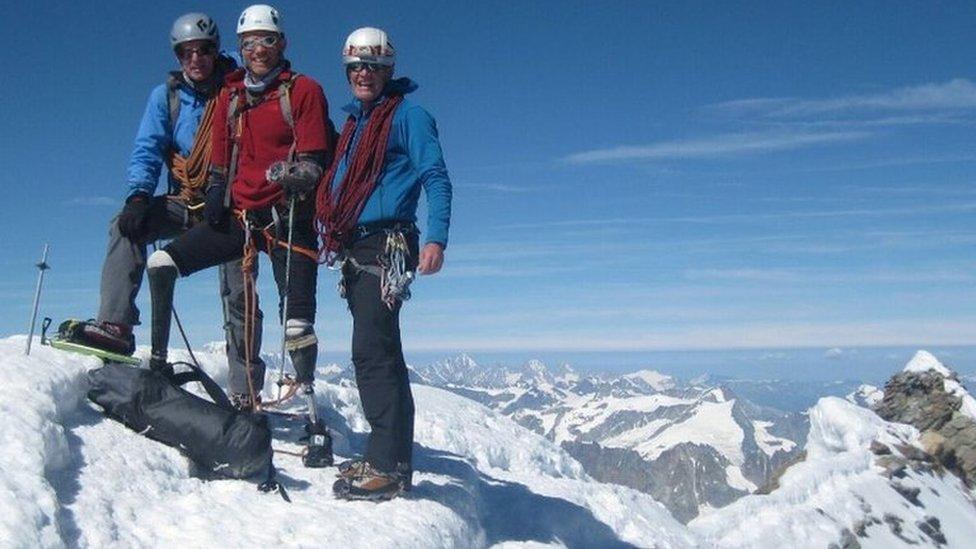
Jamie Andrew climbed the Matterhorn accompanied by two friends, mountain guides Steve Jones and Steve Monks
Scottish climber Jamie Andrew has become the first quadruple amputee to conquer the Matterhorn.
Mr Andrew lost his hands and feet to frostbite after he and his climbing partner were trapped for five nights in the French Alps in 1999.
His ascent of the 4,478m (14,692ft) Matterhorn in the Swiss Alps was five years in the planning.
He told BBC Scotland: "It was very hard, but all the preparation made the climb go like a dream."
Mr Andrew, from Edinburgh, survived a storm on Mont Blanc in 1999 which killed his climbing partner. He suffered hypothermia and frostbite and had to learn to walk again after his hands and feet were amputated.
After working with rehabilitation specialists he took up skiing, has run marathons and iron-man triathlons, and also returned to climbing.
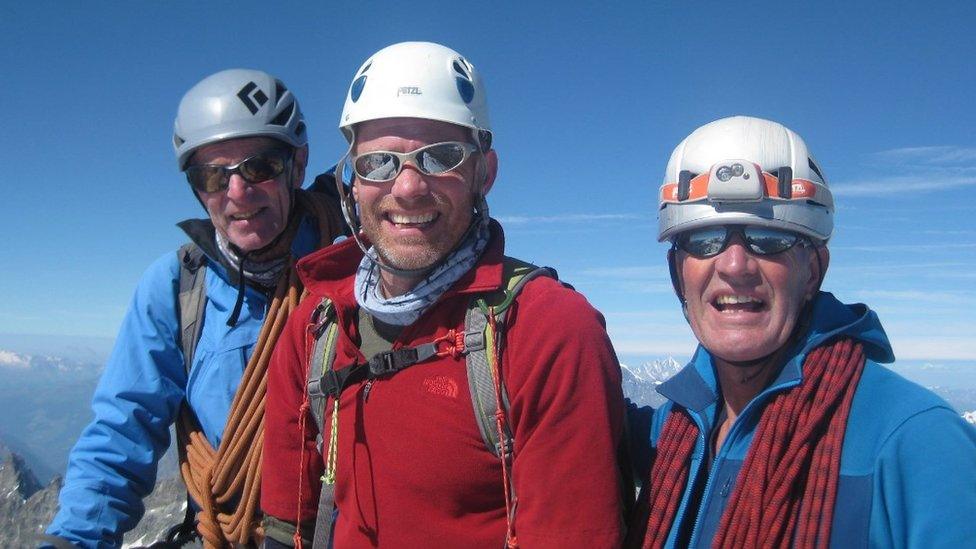
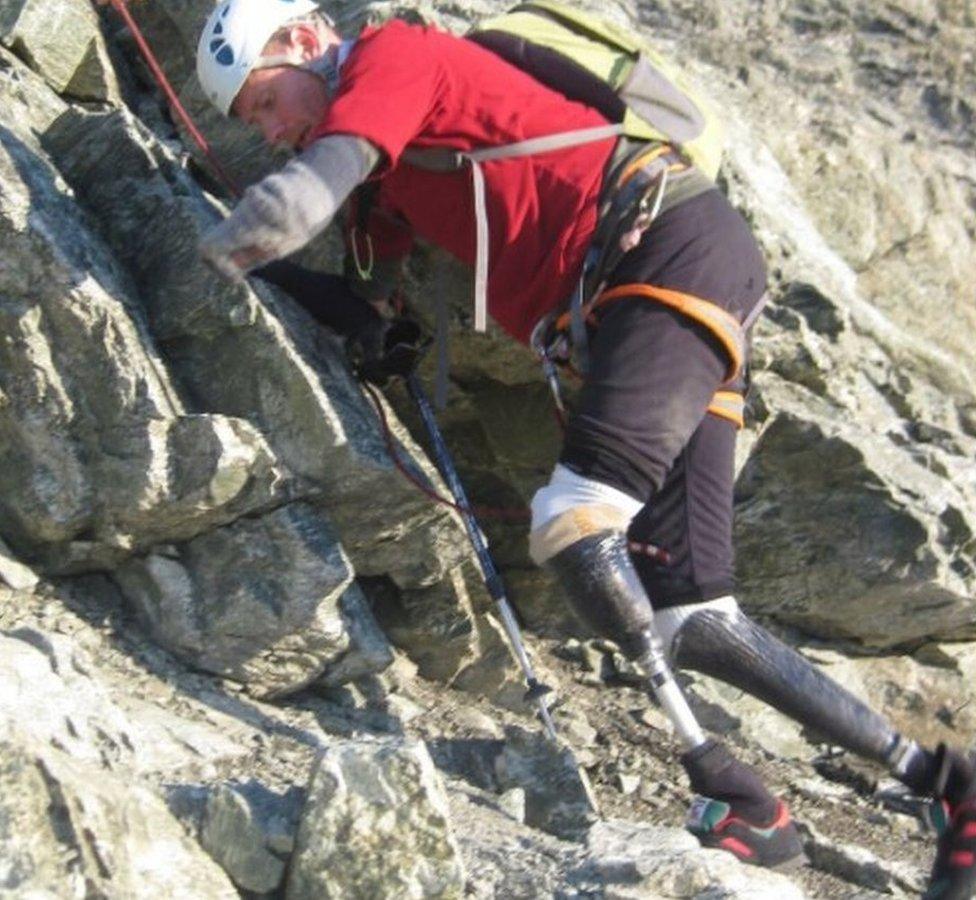
The 47-year-old conquered the Matterhorn accompanied by two friends, mountain guides Steve Jones and Steve Monks.
"It was five years ago, I first had this amazing idea that I could climb the Matterhorn without hands and feet," he told the BBC's Good Morning Scotland radio programme.
"I've got fantastic prosthetic legs which are custom-made for me. For my arms I used special poles - like ski poles - to gain purchase and keep balance on the very tricky terrain that you find all the way up."
With storms forecast later on the day of the planned climb, Mr Andrew said getting up and back down as fast as possible was essential.
"You've got to move fast to do that and that was my main challenge, just going as quickly as possible to get up and down before any storms came in."
Two other British climbers died on the other side of the Matterhorn shortly after Mr Andrew and his team completed their challenge.
It is believed that the pair, who have not been named, were surprised by unseasonably cold weather, and reports suggest one was wearing light clothing.
"It is a hazardous environment and there are dangers," said the Scottish climber.
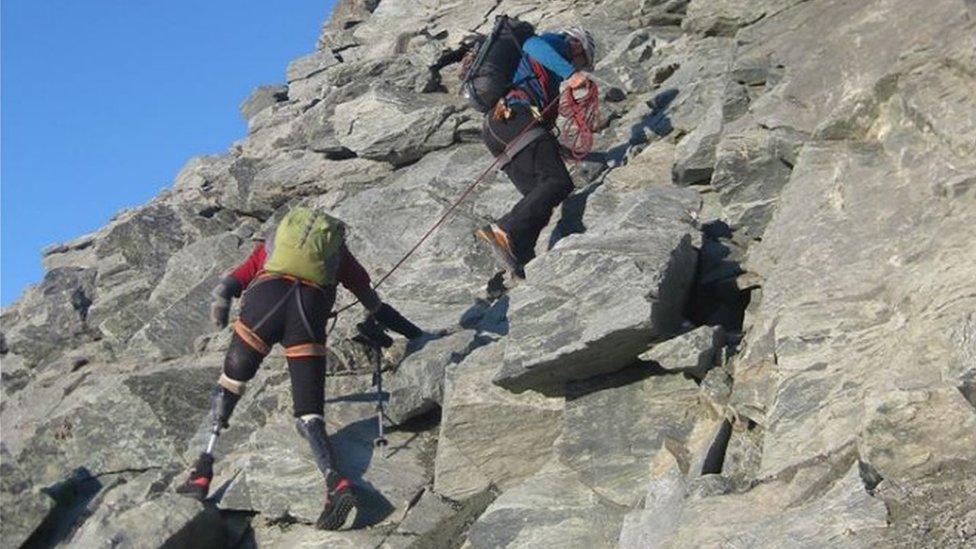
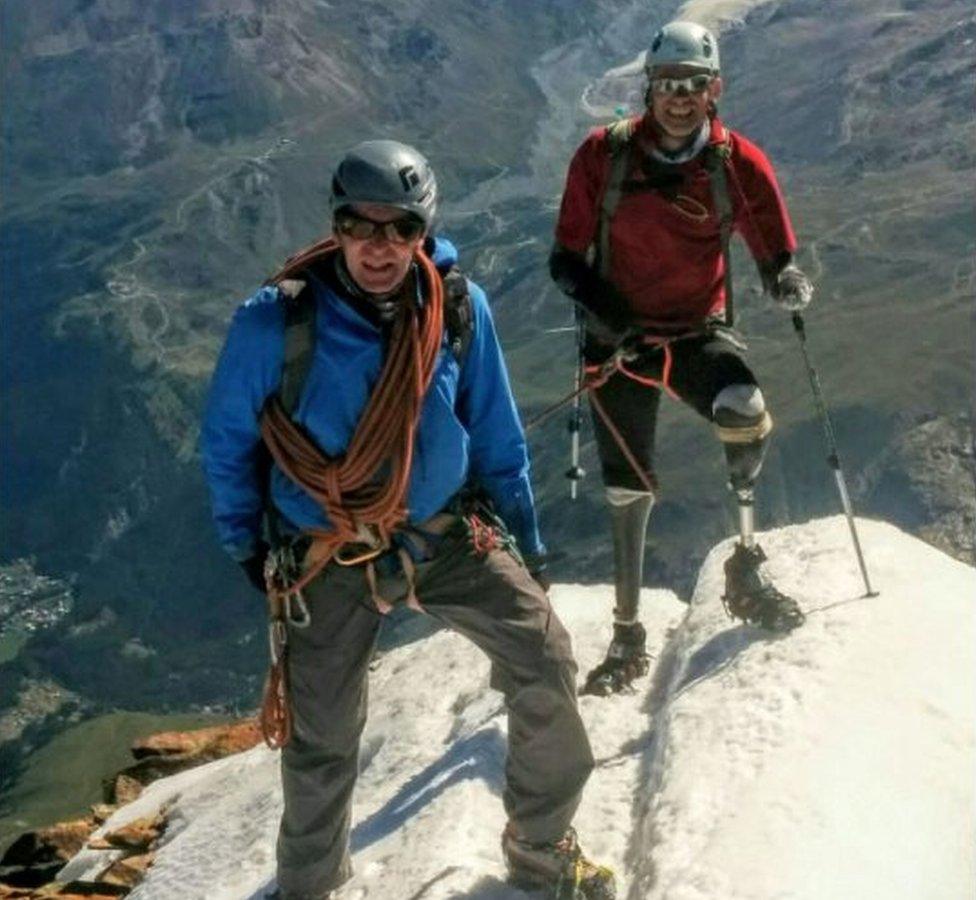
"I take the attitude that the more well-prepared you are, the more you can lessen the risks you face. I am married, and a father of three, and my biggest priority is to get off the mountain safely - getting to the summit is a bonus."
Mr Andrew described his climb as "exciting" and "amazing" and said it pushed him "absolutely to my limit".
"The summit is incredible. It's such a tiny, little summit for such a big mountain," he added.
"It's just a tiny perched, arete of snow, right on the very crest with massive drops on either side of you. It is very, very exposed.
"There was not a cloud in the sky all around. It was just beautiful to be standing there, and the summit of achievement for me after all the planning, preparation, trials and heartache that went in to it."
Has this story inspired you? Get into disability sport with Get Inspired's handy guide.
- Attribution
- Published31 August 2016
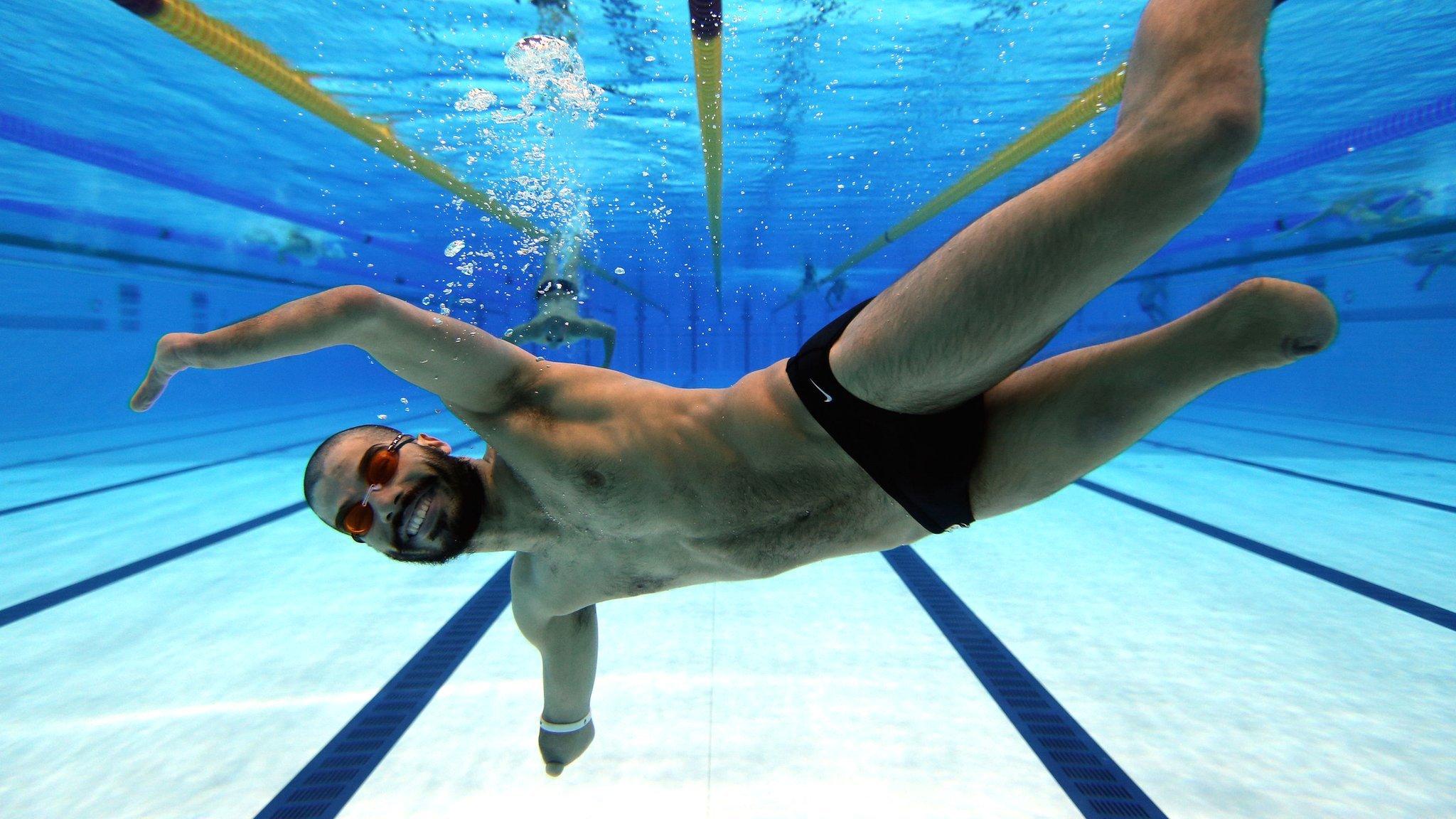
- Attribution
- Published28 May 2015
